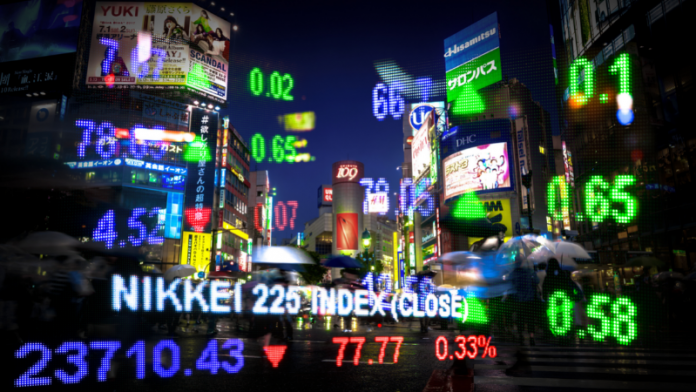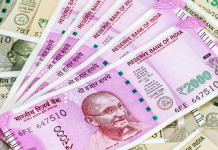Singapore: Asia-Pacific markets took a beating on Tuesday afternoon as major indexes across the region erased earlier gains, but oil prices trended higher.
The session followed a quiet day on Wall Street where the U.S. markets were closed for a public holiday (MLK Jr. Day)
In Japan, the benchmark Nikkei 225 fell 0.27% and the Topix index was down 0.44%.
Japan’s central bank left its short-term interest rate target unchanged at -0.1%, in line with market expectations, and said it will purchase a necessary amount of Japanese government bonds such that the 10-year JGB yields will remain at around 0%.
The Bank of Japan also raised its near-term inflation expectations: for the fiscal year starting in April, the inflation forecast was raised from an earlier estimate of 0.9% to 1.1%. For fiscal 2023, inflation expectation was raised from 1% to 1.1%.
Still, those figures remain below the central bank’s inflation target of 2%. Unlike global peers such as the U.S. Federal Reserve, BOJ said it will continue with its quantitative and qualitative monetary easing with yield curve control for “as long as it is necessary” to achieve and maintain the 2% inflation target.
Hong Kong’s Hang Seng index lost 0.14%, but the tech-focused Hang Seng Tech index rose 0.44% despite trimming most of its earlier gains.
Australia’s ASX 200 fell 0.16% as the heavily weighted financials subindex faltered 0.36%.
South Korea’s Kospi index dropped 1.01% and the Kosdaq was down 1.49%. In India, the Nifty 50 slipped 0.39% and the Sensex was down 0.13%.
Chinese mainland shares bucked the broadly downward trend: The Shanghai Composite was up 0.94% while the Shenzhen component added 0.3%.
Global interest rates continue to climb on expectations of faster central bank tightening, according to Tapas Strickland, director for economics and markets at the National Australia Bank.
“As for central bank pricing, markets now fully price four rate hikes from the US Fed in 2022, and the timing of the first ECB rate hike has been brought forward to September. The exception is China with the [People’s Bank of China] cutting rates by 10bps yesterday amid an uncertain growth outlook,” he wrote in a Tuesday morning note.
Chinese President Xi Jinping cautioned against a rapid rise in interest rates on Monday that could derail the global recovery from the coronavirus pandemic.
“If major economies slam on the brakes or take a U-turn in their monetary policies, there would be serious negative spillovers,” Xi said via videoconference at The Davos Agenda virtual event.
“They would present challenges to global economic and financial stability, and developing countries would bear the brunt of it,” he said, according to an English translation of his remarks.
He also called for countries to move away from a “Cold War mentality,” saying history has repeatedly shown that confrontation only invites disastrous repercussion






